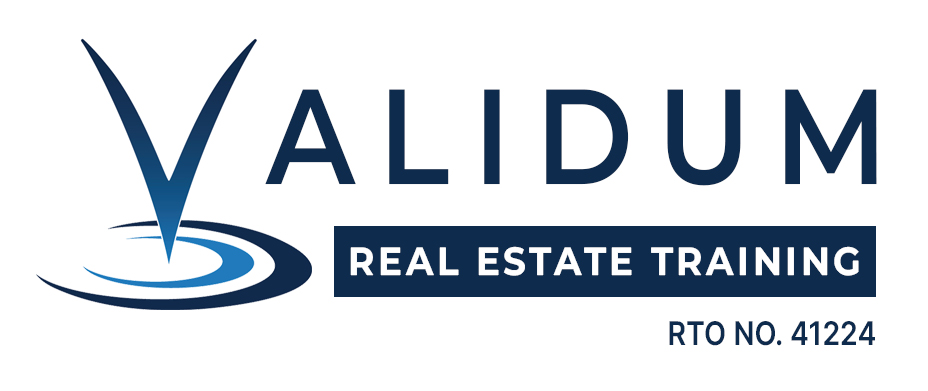The Art of Prospecting – Featuring Daniel Lee
The art of prospecting. Now there are many different ways that you can prospect out there in the marketplace. But as a newbie in the industry I’m going to give you some solid advice. There are two really fundamental and most important ways that you can prospect with your database.
Number one is knocking on a lot of doors and number two is cold calling to a lot of owners in the particular area you would like to work in and ask simple questions to the owners, ‘like when was the last time they had an appraisal on their homes’ and ‘whether or not they would be interested in getting an update on what the market value may be on that home’.
The more of this you do the more success you will have building your data base of contacts. In the beginning you will face a whole lot of rejection and this is one of the reasons why many agents avoid these types of activities but its really important that you get really good at it. You will get better and better and it will become less and less tedious as time goes on as you get better at it. You can start having a lot of fun with it, setting yourself mini goals with how many appraisals you can get. After a while this will just become a habit within your day to day activities which will help you build that platform.
Okay I’m going to talk about rejection. In this job to become a great prospector you must overcome your fear of rejection because I tell you one thing, you are going to get rejected a lot. You are going to get knocked back. You are going to get doors slammed in your face sometimes. You’re going to get people on the phone who don’t like real estate agents telling you what they think of you. But what you need to realise is that there is only a small percentage of that. Along with that comes all the people that actually do want to talk to you, and you must believe that what you are providing a really good service because you are. Every single person who owns a property out there in the marketplace, they want to know what its worth. And whether or not they know at that particular time or whether the timing is right for you to be in front of them. You need to be asking them questions because you are providing a really good service by giving people appraisal on their home. The more you ask the question, the more doors you will get into. That is how you build your databasing and a solid foundation to get listings.
In the art of prospecting I’ve talked about the most effective ways of prospecting, which is door knocking and cold calls. So how do you get really good at that so that you can convert more calls and door knocks into actual appraisals?
The first thing is confidence. Confidence in what you are actually doing and delivering because it is actually a very beneficial service you’re providing for homeowners in the marketplace to give them an appraisal on their home. There are many people don’t know or haven’t had one in years an appraisal from an agent on their home which need to be updated and that’s what you’re doing for them as the local area expert.
The second thing is practice, practice, practice. The more you practice the more you are going to be able to overcome rejection. Now in a future series I will talk about the different types of rejection you will get from people when you ask if they would like an appraisal on their property. I will give you an example. You might make a call and ask if someone would like an appraisal on their property and they say no thank you I’m not thinking of selling. The instant response you should make is well I’m not here to find out if you’re interested in selling, I’m just here to see whether you would like to know the value of your home. Steer the conversation in the direction that it is all about, its not about them selling its about you providing them with some information about their home. And if the customer understands that, they’re more likely to open up to the idea of you doing that for them.
The third thing you can do to really improve yourself in this area is to surround yourself with people who are doing the same sort of thing. Get yourself an environment where they provide education, helps you with training, helps with all round prospecting and how to get better at it. I can give you an example, when I first started prospecting I was in an office with two other young gentlemen and we use to sit in the back room on an afternoon and we would have a competition on who could get the most appraisals in two hours. It becomes a little bit of a fun game and a bit of a goal between your colleagues which is much more enjoyable, its bringing a bit of a social fun element into what can be quite a daunting task. You will get a much better result from that then sitting in a dark room by yourself for four hours overcoming rejection.
For the art of prospecting, the last time to know and do is how to follow up. Very important. You’ve made the call, you’ve knocked on the door, you’ve got into this person’s home, you’ve provided a property report and estimated appraisal on their home. What are you going to do next? You don’t just forget that person and hope that one day they call you. If they were selling in the very immediate term you would be in a very good position to possible pitch to them for their business, but you don’t want to fall by the side. You’ve already done eighty percent of the work to know be an option for these people when they go to sell. So you need to keep in regular contact, once every six months, every year, give them a call to touch base. Where are you at with your buying and selling needs and are you doing anything with real estate in the next six months? The next time they get your letterbox drop, they won’t say who is this person and scrunched up in the bin. They’ll say oh look its Dan Lee, the guy who came into my home six months ago and gave the appraisal. I really liked that guy what’s he up to? They will probably actually read it before they throw it in the bin. Alright so its really important to keep that relationship going so that when they come to sell you haven’t fallen by the side and another agent hasn’t replaced you in the meantime.






